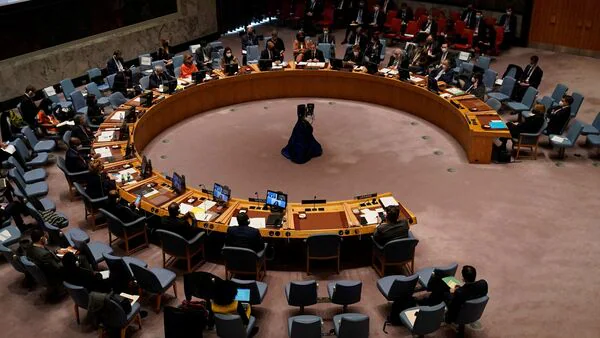New York: India said that a UN summit document for the first time containing a detailed paragraph on Security Council reform is a ‘good beginning’ and New Delhi looks forward eventually to the beginning of text-based negotiations in a fixed time frame to reform the 15-nation body.
World leaders Sunday adopted by consensus the ‘Pact of the Future’, promising to “reform the Security Council, recognising the urgent need to make it more representative, inclusive, transparent, efficient, effective, democratic and accountable”.
UN officials have described the language in the ‘Pact of the Future’ on the long-pending Security Council reforms as “groundbreaking”.
“I would only point you in the direction of the fact that for the first time, a UN summit document has a detailed paragraph on UN Security Council reform,” said Foreign Secretary Vikram Misri in response to a question on how India sees this language on UNSC reform in the ‘Pact of the Future’.
“So it may not have every single detail in every area that we would imagine or we would like there to be, but I think it’s a good beginning,” Misri told Press Trust of India.
Misri said that India looks forward “eventually to the beginning of text-based negotiations in a fixed time-frame going forward”.
“But this should be seen as the first step towards that objective. The fact that till now, we haven’t really had discussions based on text but an agreement at this level in the pact, where it keeps open the possibilities of reform of the UN system, is a gain from any perspective,” he said.
Misri was briefing reporters here as Prime Minister Narendra Modi wrapped up his three-day visit to the US during which he attended the Quad Leaders’ Summit in Delaware, held bilateral discussions with US President Joe Biden, addressed a mega diaspora event in Long Island, addressed a tech CEO roundtable, spoke in the UN General Assembly at the ‘Summit of the Future’, and held bilateral discussions with world leaders including Ukrainian President Volodymyr Zelenskyy, Nepalese Prime Minister KP Sharma Oli, and Palestinian President Mahmoud Abbas.
In the ‘Pact of the Future’, world leaders agreed to redress the historical injustice against Africa as a priority and, while treating Africa as a special case, improve the representation of the under-represented and unrepresented regions and groups including Asia-Pacific, Latin America and the Caribbean.
They also agreed to “enlarge” the Security Council to be more representative of the current United Nations membership and reflective of the realities of the contemporary world.
The pact speaks about intensifying efforts to find an agreement on the question of the categories of membership, taking into account the discussions held in the intergovernmental negotiations process.
“The total number of members of an enlarged council should ensure a balance between its representativeness and effectiveness,” the pact said.
World leaders also promised to “strengthen our efforts in the framework of the intergovernmental negotiations on Security Council reform as a matter of priority and without delay”.
They decided to encourage the submission of further models and the revision of already presented models by States and Groups of States for the structured dialogues to develop a consolidated model in the future based on convergences on the five clusters, and the models presented by Member States.
India, which has been at the forefront of years-long efforts calling for reform in the Security Council, said the 15-nation council founded in 1945 is not fit for purpose in the 21st Century and does not reflect contemporary geo-political realities, underscoring that it rightly deserves a permanent seat at the horse-shoe table.
India last sat at the UN high table as a non-permanent member in 2021-22.
A polarised Security Council has also failed to deal with current peace and security challenges with council members sharply divided on conflicts such as the Ukraine war and the Israel-Hamas conflict.
In his address to the ‘Summit of the Future’, Prime Minister Narendra Modi emphasised that for global peace and development, reforms in institutions are essential, underlining that reform is the key to relevance.
UN Secretary-General Antonio Guterres, in his opening remarks to the ‘Summit of the Future’, stressed he had called for this meeting of world leaders to consider deep reforms to make global institutions more legitimate, fair and effective, based on the values of the UN Charter.
“I called for this summit because 21st century challenges require 21st century solutions: frameworks that are networked and inclusive; and that draw on the expertise of all of humanity.”
Noting that the United Nations had 51 Member States when it was established nearly 80 years ago, Guterres said today it is made up of 193 nations.
“As a result, our peace and security tools and institutions, and our global financial architecture, reflect a bygone era,” Guterres said.
Guterres warned the 15-nation United Nations Security Council, which he described as “outdated” and whose authority is eroding, will eventually lose all credibility unless its composition and working methods are reformed.
The UN chief gave a clarion call: “We can’t build a future for our grandchildren with a system built for our grandparents”.
PTI






































